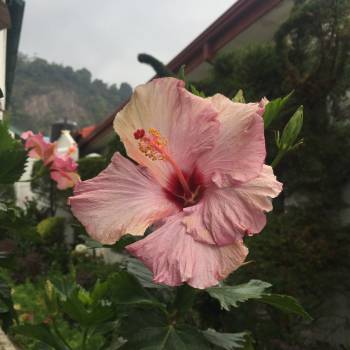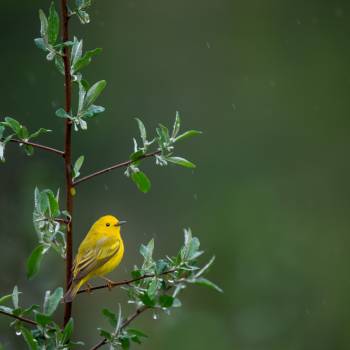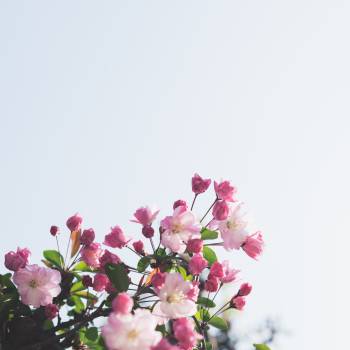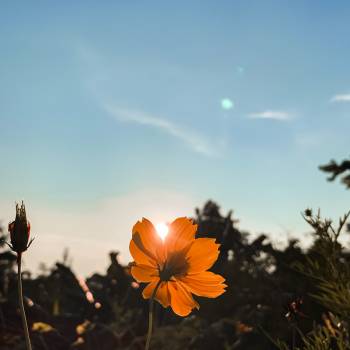“The desire to see someone in Paradise is, in my opinion, true love.”
Allah Subhana Wa Ta’La gave us free will, and a part of that is we’re free to love.
But another component is that we’re also free to choose how we love and, to some extent, what and who we love.
And as Muslims, my brothers and sisters, our hearts should be full of love.
The truest manifestation of love (as we discussed in the article: https://community.qalby.io/ilm-feed/164/the-truest-love) is loving Allah and showing this love by sincerely embracing everything that brings us closer to Him and shielding ourselves from everything that takes us away from Him.
And our love should also encompass His Creation; we should want good for all His creatures and desire to connect them all to Him.
My brothers and sisters, have you ever passed someone on the street who looked like they were struggling and made a quiet du’a for them that Allah lightens their burden and guides and blesses them? Do you give them a friendly smile and nod in passing, or try to do them a kindness, even as simple as holding the door open for them?
Have your eyes ever fallen on a gift from someone, and have you paused in your busy day and made a heartfelt prayer for them, considering what they would need from Allah in their unique situation? Would you then have sent them a message of love and appreciation?
Then, what about those who are not with us any longer? Do we keep their memories green, not just by reminiscing about them, but by asking Allah to grant them His ‘Afw (pardon), ‘Aafiyah (wellbeing), and Rahma (mercy)? Do we give sadaqah and invest in beneficial causes on their behalf?
My brothers and sisters, if you look closely, you’ll notice a pattern here.
Firstly, love isn’t just an emotion that floats in and out of our hearts, it is solidified by our actions.
Love is a verb, as they say!
And secondly, if the love of Allah truly takes the foremost place in our hearts, then the relationships and interactions we value the most with people are those that bring us closer to Him.
And this is loving for the sake of Allah-
You love a person because they connect you to Allah and bring you closer to His love.
This could be through the feeling of heart-stirring gratitude because they cool your eyes and please your heart just by looking at them.
It also could be because when you serve them and do ihsan (good with excellence) to them you also please Allah and He fills your heart with peace and contentment.
Or it could be that they actively show you the way back to Allah when you slip, and gently nudge you back to the straight path, SubhanAllah.
Alhamdulillah, I recently experienced this beautiful lesson in love when working on a community service project with my group of sisters for the Taleem Al-Qur’an course (link down below). We are from all different walks of life and might not have had the drive or opportunity to get to know each other at any other time or place. But, SubhanAllah, working together in the way of Allah; supporting and hyping up each other with our various tasks, giving sincere encouragement, and reminding each other to trust Allah’s plan when things got challenging, really taught me that when Allah brings hearts together, this unique type of bond only grows from strength to strength.
However, we need to remember that this world of tests isn’t Jannah, and even in our loving relationships, there are inevitably going to be ups and downs.
Sakinah & Sacrifice
Let’s delve into this reality using the lens of marriage.
Because unlike the relationships we are born into, by the Wisdom of Allah, we are much more involved in the process of choosing a spouse.
And we also tend to feel like we can expect more from this relationship while perhaps taking our serious responsibilities more lightly due to exhilarating Hollywood-and-Bollywood-infused love, romance, and intimacy being advocated.
However, what does Allah emphasize between spouses?
“And of His signs is that He created for you from yourselves mates that you may find tranquillity in them, and He placed between you affection and mercy. Indeed, in that are signs for a people who give thought.”
[Ar-Rum:21]
In this beautiful verse, Allah describes to us the ideal relationship between spouses and the why behind such a unique type of bond.
It is a relationship where the man and woman derive Sakinah (tranquility) from each other, they reside together in a way that protects the peace and security of both; spiritually, emotionally, and physically.
Allah has also blessed the two spouses with affection and mercy towards each other, covering each other’s faults like clothes, preserving each other’s self-respect, and complimenting each other.
Yes, of course, there is love.
But many people confuse love with a mood; the happy hormones like serotonin and oxytocin that pulse through our nervous system during the ‘honeymoon phase’, and when those effects fade away with time, they believe that they have ‘fallen out of love’.
Then suddenly, going out of the way to make their partner happy and comfortable becomes less easy, and people get more focused on what they feel, and whether or not they are satisfied.
They start honing in on their rights and how their spouse may not be up to par in understanding their needs.
If we believe that being in love is supposed to feel like walking on a cloud at all times then this is a delusion.
And there is wisdom in this as well.
Struggles are when love becomes a choice, at this point is the test of whether your love is true or not.
These challenges, when human beings prove their faultiness and make mistakes, it’s an opportunity to forgive, make amends, and grow together.
If you’re truly two people who want to love each other in the best way, being the other half of their Deen and beautiful companions in Jannah, then you will make an effort to humble yourself, acknowledge your mistakes, and improve on your communication and actions.
After all, what is more genuine than a person putting in the effort to give you what you want and need to feel loved, safe, and appreciated?
However, it’s up to you to respond in a way that pleases Allah and use compassion and respect to tell your spouse what they might not even know- that they’re making you feel a certain way or that you would like them to pay more attention to such and such.
And even if you initially didn’t have those fluttery blissful feelings of adoration for your spouse, you still have the choice to make the effort to nurture a more mature love that will grow slowly but steadily, In Shaa Allah.
Beneficial Boundaries
While sacrifice and compromise to maintain tranquillity for the sake of Allah are an integral part of our significant relationships, there is a healthy balance put forth by our Deen.
Unconditional obedience and devotion are only to Allah who is above any imperfections and free from all need.
When it comes to the human beings who have rights upon us to fulfill, we can set boundaries with love.
In fact, these boundaries can actually lead to stronger relationships that bring people closer together on their journey towards attaining Allah’s Rida (Pleasure).
It’s just a matter of communicating with your partner in a way that is considerate, respectful, and loving.
For instance, even though your husband has the right to invite guests to the house, you can request him to inform you a certain number of days in advance so you can prepare.
And for the brothers, while your wife has a right towards your affectionate attention, you can discuss with her the days on which you would like to unwind for a few hours by playing your favourite sport.
Leaving room for each other to grow as individuals is vital to growing as a couple, and this requires giving each other space, if necessary, with the best of intentions and without letting an ego, bitterness, or insecurity spoil this good deed.
How beautiful is it that Allah rewards us for the smallest act of selflessness we do for another, as long as we have the pure intention to make Him happy with us.
And a great way to check ourselves if we’re making these sacrifices for the sake of Allah is to see if we’re given to complaining and grumbling about them or reminding others of the favours we do them!
Let’s end with this incredible Du’a:
اللَّهُمَّ اِنِّىْ اَسْئَلُكَ حُبَّكَ وَ حُبَّ مَنْ يُّحِبُّكَ وحُبَّ عَمَلٍ يُّقَرِّبُ اِلى حُبِّكَ
Allahumma inni asaluka hubbaka, as hubba man yuhibbuka, wa hubba amalin yuqarribuni ila hubbika
“O Allah! I ask You for Your Love and the love of those who love You, and for the love of every action which will bring me closer to Your Love.”
[Jami’ at-Tirmidhi 3235]
Allahumma Aameen.
Link to Taaleem Al Quran Course (Bismillah!): https://www.alhudasl.com/site/tq/
 Maryam Hamza
Maryam Hamza 







Farah Rosli
Maryam Hamza